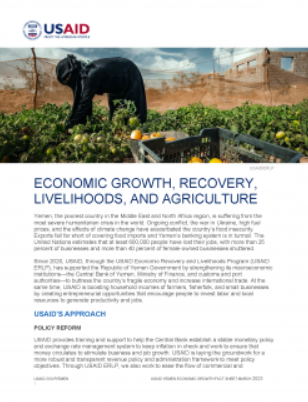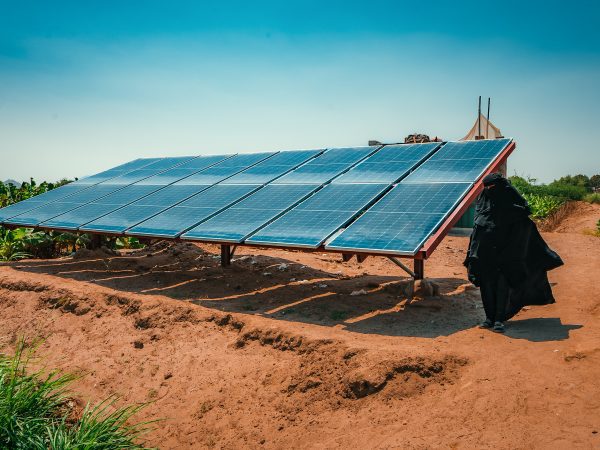Economic Recovery and Livelihoods Program (ERLP)
USAID Economic Recovery and Livelihoods Program (ERLP)
Yemen | 2020 to present
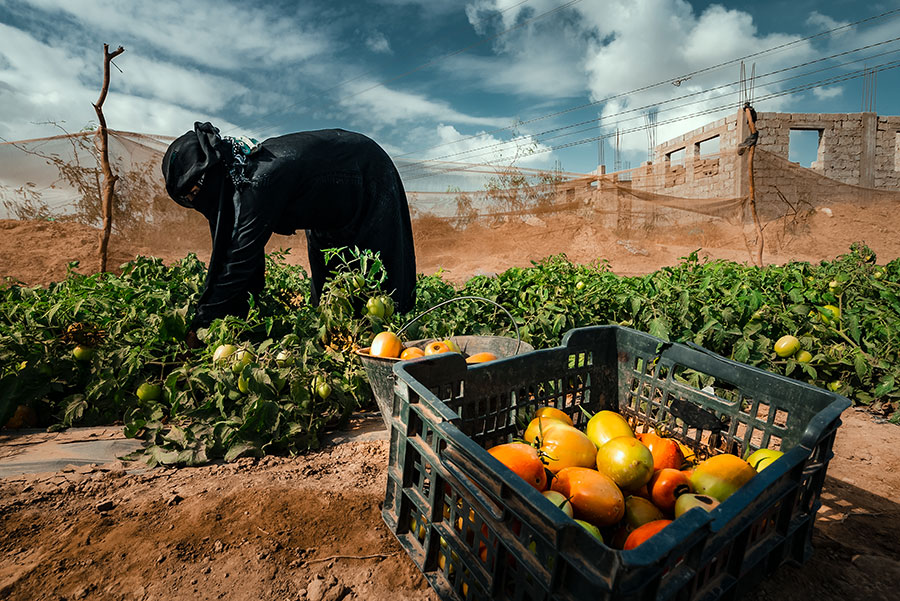
Overview
Yemen, the poorest country in MENA, is suffering from the most severe humanitarian crisis in the world, exacerbated by the ongoing civil war. The war in Ukraine and high fuel prices have increased the country’s climate change-afflicted food insecurity. Exports fall far short of covering food imports and Yemen’s banking system is in turmoil. The UN estimates over 600,000 people have lost their jobs, with more than 25 percent of businesses and more than 40 percent of female-owned businesses shuttered.
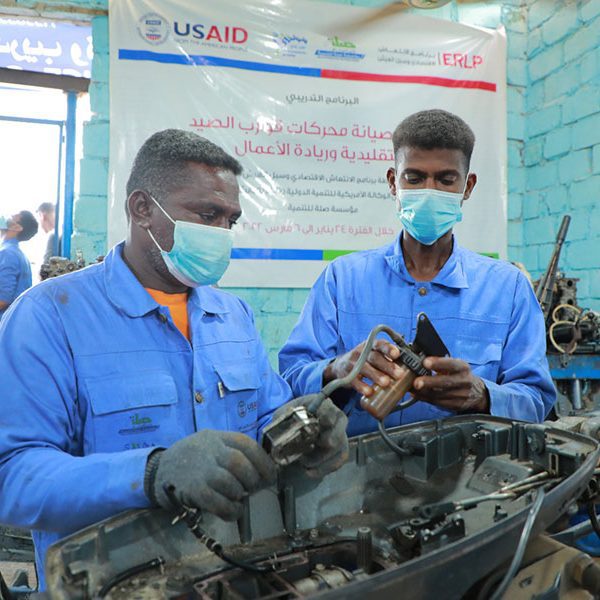 Since 2020, Pragma, under USAID’s Economic Recovery and Livelihoods Program (ERLP), has supported the Republic of Yemen Government’s journey to self-reliance by focusing on improving important macroeconomic stability and private-sector competitiveness. Working with Yemen’s macroeconomic institutions—the Central Bank of Yemen (CBY), Ministry of Finance, and Customs and Port Authorities—USAID ERLP has laid the institutional groundwork for sound macro-financial policy to buttress the country’s fragile economy, while systematically addressing trade transit barriers to unlock commercial, investment, and humanitarian assistance flows.
Since 2020, Pragma, under USAID’s Economic Recovery and Livelihoods Program (ERLP), has supported the Republic of Yemen Government’s journey to self-reliance by focusing on improving important macroeconomic stability and private-sector competitiveness. Working with Yemen’s macroeconomic institutions—the Central Bank of Yemen (CBY), Ministry of Finance, and Customs and Port Authorities—USAID ERLP has laid the institutional groundwork for sound macro-financial policy to buttress the country’s fragile economy, while systematically addressing trade transit barriers to unlock commercial, investment, and humanitarian assistance flows.
At the same time, USAID ERLP is growing household incomes of farmers, fisherfolk, and small businesses by creating entrepreneurial opportunities that encourage people to invest labor and local resources to generate productivity and jobs. Via gender-responsive analyses, outreach to female producers, job seekers, and entrepreneurs is prioritized, and a recent solar finance initiative is supporting small farmers to adopt more climate-friendly practices.
Goals
Policy Reform
- Rebuild the capacity of the CBY to establish a stable monetary policy and exchange rate management system aimed at keeping inflation in check, and ensuring money circulates to stimulate business and job growth.
- Lay the groundwork for a more robust and transparent revenue policy and administration framework to meet policy objectives.
- Facilitate the flow of commercial and humanitarian goods and services through Yemen’s borders and ports.

Private Sector Competitive Engagement
Enhance the productivity and market linkage capacity of a wide network of small-holder farmers and coastal fisher-folk by focusing on boosting the performance of small and medium enterprises (SMEs) across a range of high potential economic sectors. This is accomplished through technical/training support and innovative programs that sustainably strengthen market linkages across key employment-intensive agricultural/agribusiness value chains.
Achievements
- Helped the Central Bank develop a framework for annual monetary planning, which helped stabilize prices for Yemeni people and businesses.
- Provided support to the Central Bank to meet international transparency standards, including a new monthly Economic Bulletin., which provides a snapshot of Yemen’s current economic status by summarizing macro-financial performance and related policy/regulatory developments. This level of transparency builds confidence for financial stakeholders, international donors, and others
- Helped establish Yemen’s first foreign exchange auctions, which have increased transparency by countering corruption and stabilized Yemen’s volatile foreign exchange rates.
- Strengthened the Ministry of Finance’s ability to prepare, manage, and monitor the national budget, which will aid the delivery of government programs and services.
- Reduced wait times from 25 to three days at the Port of Aden’s Ma’llaa Terminal, Yemen’s primary gateway for imported food, goods, and essential humanitarian supplies.
- Supported Yemen in implementing 17 World Trade Organization trade facilitation agreements, which help increase imports of essential goods, including humanitarian aid, food, fuel, and medical supplies.
- Helped over 2,000 Yemenis secure stable jobs in the healthcare, education, textile and garment, light manufacturing, and agriculture/agribusiness sectors.
- Helped 7,380 SMEs access $27.2 million in loans from partner financial institutions to help them grow successful businesses and support investments to increase production.
- Delivered 186 training sessions to more than 5,800 farmers—40 percent of whom were women—to modernize farming techniques, improve product quality, enhance production, and increase rural household incomes.
- Assisted farmers through support and training by promoting simple, high-potential climate-smart farming technologies, including greenhouses, tunnel farming, drip irrigation integrated with plastic mulching, solar-fed water pumping, animal fattening, and modern beehive techniques.
- Facilitated 400 sales agreements worth more than $5 million between Yemeni agri-producers and local and international buyers of fish, coffee, honey, livestock, tomatoes, onions, chili peppers, and watermelons.
Focal points
- Public Financial Management
- Monetary Policy Reform
- Foreign Investment
- Communications/Transparency
- Anti-Corruption
- Trade Facilitation
- Private Sector Engagement
- Sustainable Livelihoods
- Gender Inclusion and Equity
- Climate Smart Technologies
- Workforce Development
- Access to Finance
- Coastal Women
- Entrepreneurship
- Agri-business Growth and Market Linkages
- Fisheries Strengthening and Competitiveness
- Business Enabling Environment
In the News
- Yemen Trains for Bigger Honey Harvests | July 1, 2023
- The inauguration of the agricultural finance unit at the Bank of Yemen and Kuwait in the capital, Aden | February 27, 2023
- The CEO of Al Qutibi Islamic Bank meets the head of the Pragma Organization team | February 2023
- Al-Qatibi Bank is looking for joint cooperation with an international organization team | February 18, 2023
- Al-Thaqali launches a workshop entitled “The Fisheries Sector in the Socotra Archipelago: Challenges and Opportunities” | March 2, 2023
Share This Page
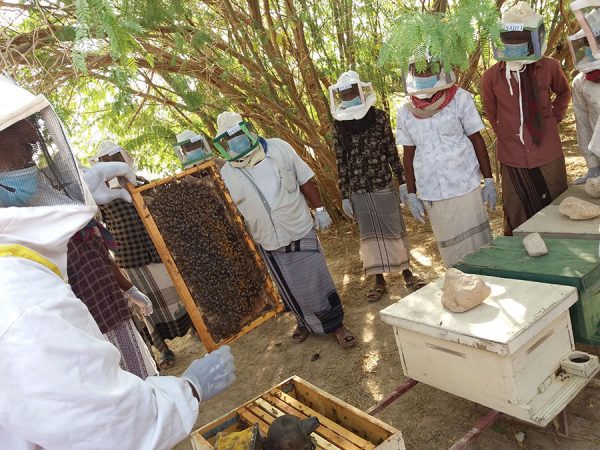


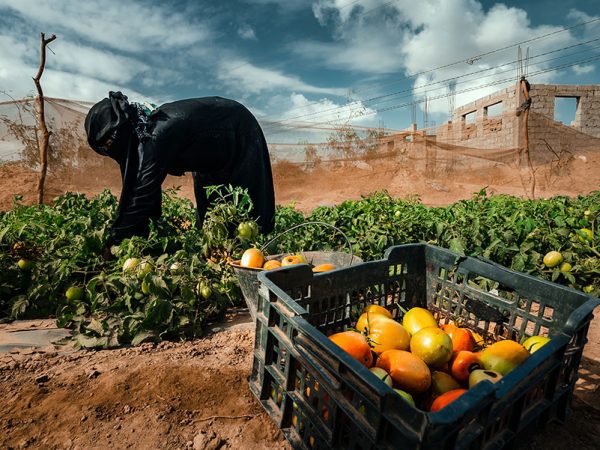
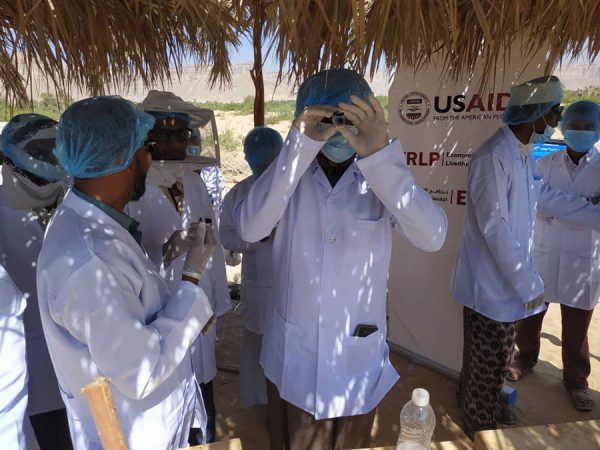



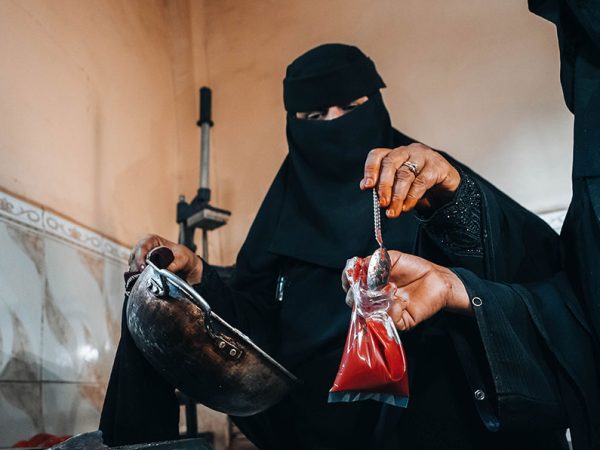




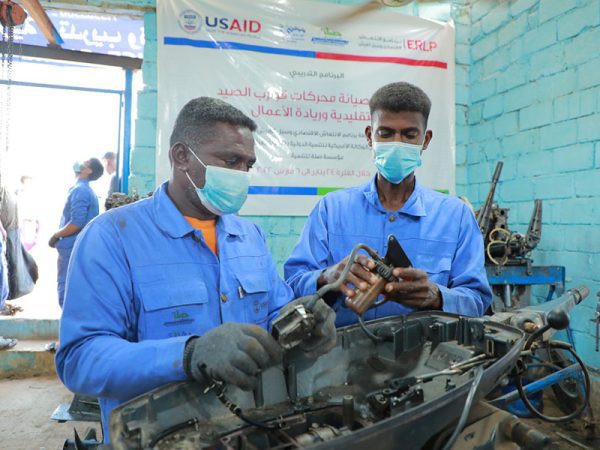

Success Stories
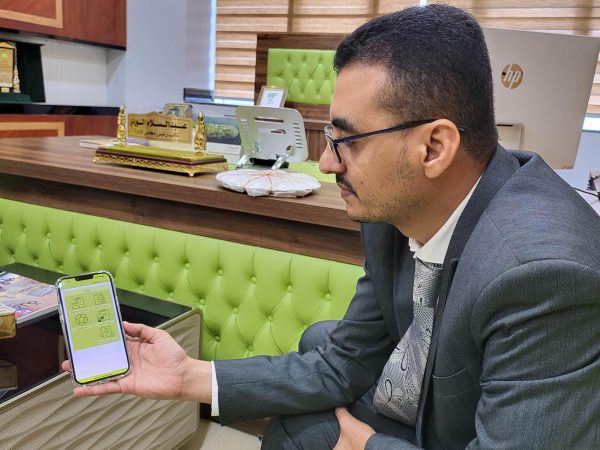
USAID Supports Yemen to Adopt Mobile Financial Services
August 7, 2023

Boat Repair Spurs Coastal Profits in Yemen
July 20, 2023
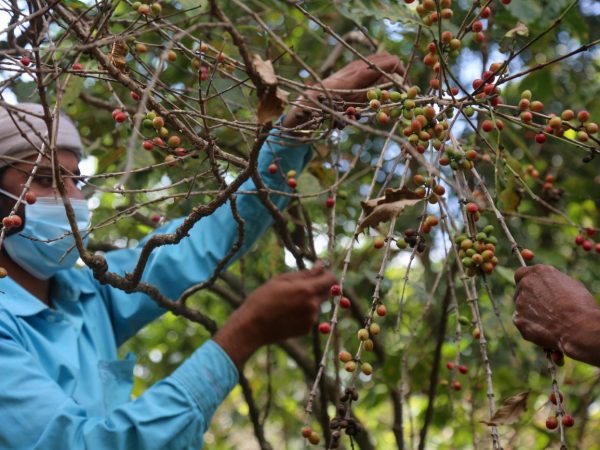
Yemeni Specialty Coffee Heading to New York
April 19, 2023

